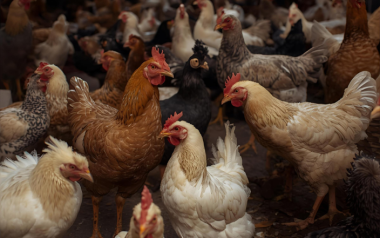Sources: Available upon request
27 Jun 2025
Brazil’s Avian Influenza outbreak disrupted global poultry trade
The avian influenza outbreak in Brazil not only disrupted one of the world’s most critical poultry supply chains but also underscored the fragility of global food systems in the face of disease outbreaks.
In May 2025, Brazil—responsible for over 35% of global poultry exports—confirmed its first-ever case of Highly Pathogenic Avian Influenza (HPAI) at a commercial farm in Montenegro, Rio Grande do Sul. This outbreak marked a critical moment for the global poultry industry, triggering immediate trade disruptions and raising concerns about food security and supply chain stability.
The outbreak led to the death or preventive culling of over 35,000 birds. In response, Brazilian authorities swiftly implemented strict containment measures, including quarantine zones, disinfection protocols, and surveillance of more than 500 nearby farms. Despite these efforts, the international reaction was swift and cautious.
By mid-June 2025, 24 countries had imposed trade restrictions on Brazilian poultry. These ranged from full import bans by major markets like China, the European Union, and South Korea, to regional or city-specific bans by countries such as the UK, UAE, and Japan. These restrictions significantly disrupted global poultry supply chains, as importers scrambled to find alternative sources in the U.S., Canada, and other exporting nations.
The economic impact was immediate. Brazil’s poultry export industry, valued at over \$10 billion in 2024, faced sharp declines in shipments and revenue. Global poultry prices surged due to reduced supply, affecting both consumers and food producers worldwide.
However, Brazil’s rapid and transparent response has been praised by industry leaders and international observers. The Ministry of Agriculture launched a 28-day observation period starting May 22, aiming to regain bird flu-free status by late June. If successful, this could lead to the lifting of trade bans and a gradual normalization of exports.
The outbreak also served as a wake-up call for poultry producers globally. It highlighted the importance of robust biosecurity measures, early detection systems, and international cooperation in managing zoonotic diseases. Lessons learned from Brazil’s experience are likely to influence poultry farming practices and trade policies worldwide.
In conclusion, the avian influenza outbreak in Brazil not only disrupted one of the world’s most critical poultry supply chains but also underscored the fragility of global food systems in the face of disease outbreaks. The long-term impact will depend on how quickly Brazil can restore confidence among its trading partners and how the global industry adapts to prevent future crises.







































